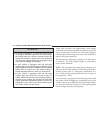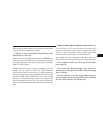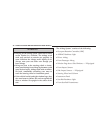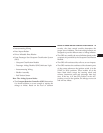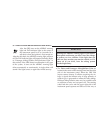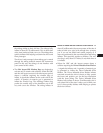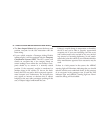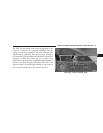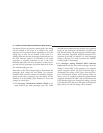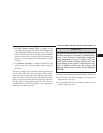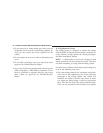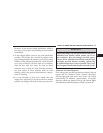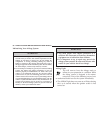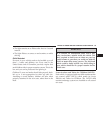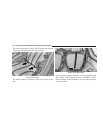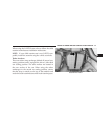
For almost all sizes of properly seated adults, the airbag
will be enabled in the event of a collision. For small
teenagers and some small adults, depending on size, the
airbag may or may not be enabled in the event of a
collision. Both drivers and passengers should always use
the PAD indicator light as an indication if the front
passenger is properly positioned or not. If the PAD
indicator light comes on when an adult is in the passen-
ger seat, have the passenger re-position themselves in the
seat until the light goes out.
Remember, if the PAD indicator light is illuminated the
passenger front airbag will not inflate. For properly
installed child restraint systems and children properly
seated on the front passenger seat, the airbag will be
disabled. If at all possible, place children 12 years and
younger in a back seat.
•
The Occupant Classification Module (OCM) is lo-
cated beneath the front passenger seat. The OCM
classifies the occupant into one of three size categories
based on the input from the Bladder Assembly and
Belt Tension Sensor. The size categories include empty,
child, and adult. The OCM sends the Occupant Clas-
sification to the ORC to identify if a front passenger
airbag is allowed. If a fault is present, the AIRBAG
warning light is illuminated.
•
The Passenger Airbag Disabled (PAD) Indicator
Light indicates to the driver and passenger when the
airbag is turned OFF in the presence of a properly
seated occupant. When the PAD indicator light is
illuminated, the airbag is OFF. Also, when the Occu-
pant Classification System (OCS) detects either an
empty seat of a weight less than the predetermined
occupant threshold, the ORC will not illuminate the
PAD indicator light even though the airbag is turned
off. When the OCS detects an adult the PAD indicator
light will be off, and the airbag will be enabled.
54 THINGS TO KNOW BEFORE STARTING YOUR VEHICLE



